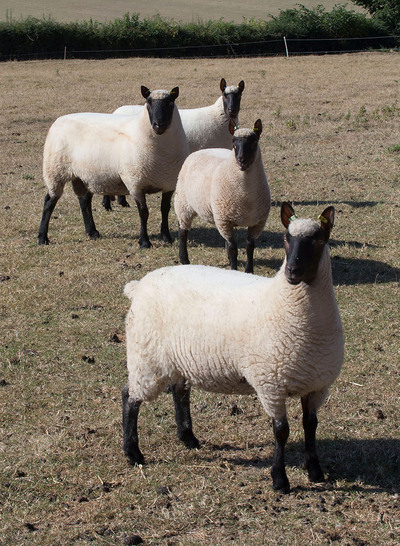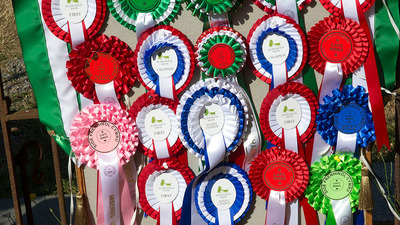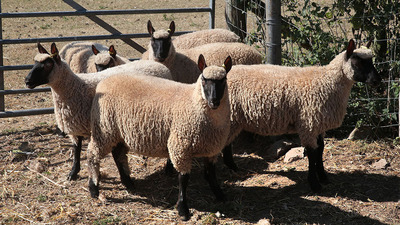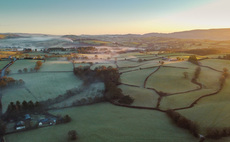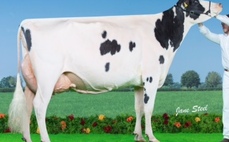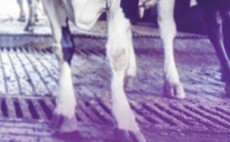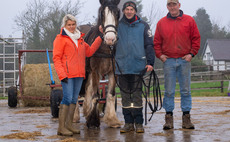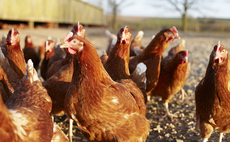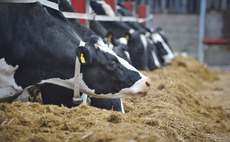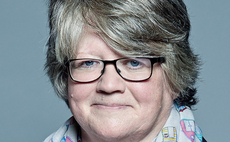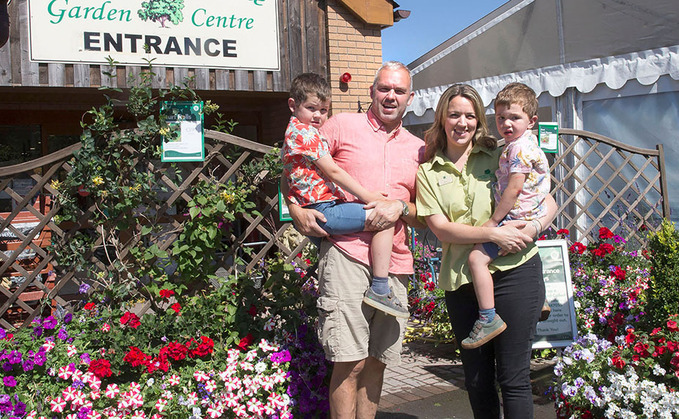
The Eckley family have a long history in breeding Cluns. Barry Alston finds out more.
BRITAINS oldest Clun Forest flock is enjoying one of its best show seasons in years, spurred on by a new home and a new career for Mike Eckley and his family.
The return of shows, both large and small following the Covid-19 lockdown, has seen stock carrying the Mid Wales-based Court-Llacca prefix heading up a string of breed and inter-breed championship line-ups.
Changing career
With a 23-year stint as a police officer behind him, their family have quite a story to tell and, after years of keeping stock across various places, Mike now has the time to focus on the farming side.
All the Cluns are now gathered together from fields far and wide at the familys new Radnorshire-based Haycroft smallholding and the flocks future development is looking even more positive.
We may only have eight acres on a hillside overlooking the tiny village of Llyswen, between Brecon and Builth Wells, but it means that at last a dream has come true.
Keeping the flock going by not being in easy reach of the stock has been challenging indeed, says Mike, the fourth generation of the family to keep Cluns.
We only moved in at the beginning of May, but already we are seeing the benefits of having the flock in one place.
We already have extensive records of all our Cluns, some dating as far back as the 1920s, and once we have improved the fields and the existing buildings the aim is to intensify our breeding programme.
Until now that has not been possible, but with the input from my wife, Katie, daughter, Evie, and two young sons, Thomas and Teddy, as well as finding a new working life in the world of horticulture, we will be seeking to breed more championship-winning Cluns.
Established back in 1902, the Court-Llacca prefix is well known across the UK and beyond, but its existence today is entirely down to a single ewe lamb having been hidden away in a garden shed on dispersal sale day.
The familys Clun connection began when Thomas Eckley, Mikes great grandfather, took on the tenancy of Court-Llacca, a 101-hectare (250-acre) hill farm on the Felin Newydd Estate, between Brecon and Hay-on-Wye in the Breconshire part of what now forms the county of Powys.
Choosing the Clun breed
His start-up choice of breed was largely influenced by the tens of thousands of Clun Forests being kept on farms along the Wales-England border and Shropshire in particular from where the breed originates.
He was an early member of the Clun Forest Sheep Breeders Society, formed to secure the breeds purity and type, alongside promoting its virtues throughout the sheep industry.
Tom Eckley, Mikes grandfather, was the next generation at Court-Llacca and that heralded the beginning of the flocks show ring successes, including the 1936 Royal Welsh, staged that year in North Wales at Abergele.
The first post-second world war win came in 1945 and saw the flock setting the record of topping all eight of the classes at the societys annual show and sale, as well as taking the champion and reserve awards for both male and females.
The breed recognition
The following 30 years brought wider recognition as one of the top Clun flocks in the UK with championship rosettes being taken at countless shows, notably the Royal Welsh, the English Royal, Three Counties, Shropshire and West Midlands, Bath and West, Great Yorkshire and Smithfield.
The breed itself had also become more popular, with more than 75,000 ewes and rams being sold in the 1950s at the societys official Craven Arms sales, with similar sized entries at other venues.
Tom passed away in 1979 and Robert, my father, took over the farm, says Mike.
By then the breeds popularity had started to wain and the Court-Llacca flock came close to being cross-bred, but my mother, Gwen, persuaded Dad to keep breeding them pure.
I became interested in Cluns and started showing in 1984 while still at school and would help around the farm when time permitted.
Two years later we won the Clun national flock competition and that really sparked my passion for the breed and farming in general to the extent of enrolling on a three-year course at Aberystwyths Welsh Agricultural College.
But then, realistically seeing no long-term future in farming what was a Less Favoured Area classified tenanted holding, I decided to follow my brother, Stuart, into Dyfed-Powys Police while still helping out on the farm.
In 1998, when Dad reached the age of 65, he decided to give up the tenancy and September 12 was set for the flock dispersal sale, ending almost 100 years of there being Cluns at Court-Llacca - but it was to be an occasion marred by tragedy.
On the evening of August 30 while on mobile patrol locally, I was called to a serious road traffic collision at the Pontybat crossroads which was only a mile from Court-Llacca, says Mike.
There I found my oldest brother, Phil, was a passenger in one of the cars. He was dead, along with one of his best friends. They had been hit by a driver who subsequently went to prison for causing death by drink driving.
With the farm sale only days away, the family was in pieces and it was only due to friendships and the support of neighbours that it went ahead.
It was not, however, the celebration and happy day we had hoped for, although three breed records were set for aged ewes, shearling ewesand ewe lambs.
On the morning of the sale I felt the story could not end there so I picked out what I considered to be the best ewe lamb and hid her in a shed without telling anyone.
I was still in shock and perhaps suffering from what we would now call post-traumatic stress disorder. I had no land or plan of how to carry on. I just hoped everything would turn out for the better and thankfully it has.
Due to the support of some very good friends, Richard and Celia Price, who had a Clun flock 10 miles away in Painscastle, I was able to keep my ewe lamb with them.
Subsequently I was able to use their stock rams to slowly rebuild the Court-Llacca flock and something for which I will be eternally grateful.
Four years later to mark the centenary of Court-Llacca Cluns, Mike competed at Stoneleighs Royal Show, winning the breed championship and the reserve inter-breed title.
The next 10 years saw no showing at all as flock numbers gradually increased and kept in small groups at several locations.
I decided to get back into the ring in 2014 as I thought it would be a fun thing to do with Evie, who was nine years old at the time. It was great to be back and we won the Royal Welsh championship, having previously taken the same award 16 years earlier and just before the dispersal sale, says Mike.
The flock took the same rosette the following three years as well as the reserve inter-breed sash.
Retirement from the police not only brought the opportunity to find a permanent base for the sheep, but a new job working alongside Katie at the Old Railway Garden Centre in Three Cocks, voted as the UKs best garden centre.
Not having to work shifts and a far less stressful life means I now have the time to develop the flock further, given a growing demand for breeding stock from across the UK and enquires from the USA and France, says Mike.
But with so many breeds to choose from, why did he opt to stay with the Clun Forest. What makes it so special?
For me there is no better sight than a group of Clun ewes in a field showing off their dark brown faces and upright ears, as well as being good at what they do rearing top quality lambs, says Mike.
Other qualities are hardiness, long living, good fertility and an excellent mothering ability. They are great for producing crossbred ewes highly suitable for going to a range of terminal sire breeds.
Traits of the Clun breed
The Clun is also noted for producing the highest butterfat content in their milk of any sheep breed, making it popular for crossing with dairy sheep to put extra richness in sheep cheese.
After 24 years of being homeless and nomadic, the Court-Llacca flock now has a solid base. Sheep that had been boarded out and housed with several Clun breeders up and down the country are together for the first time.
After a five-year absence it felt right to return to the Royal Welsh in July. Sadly, Dad passed away in June, aged 88, and would have loved to see the flock back in championship-winning form.
